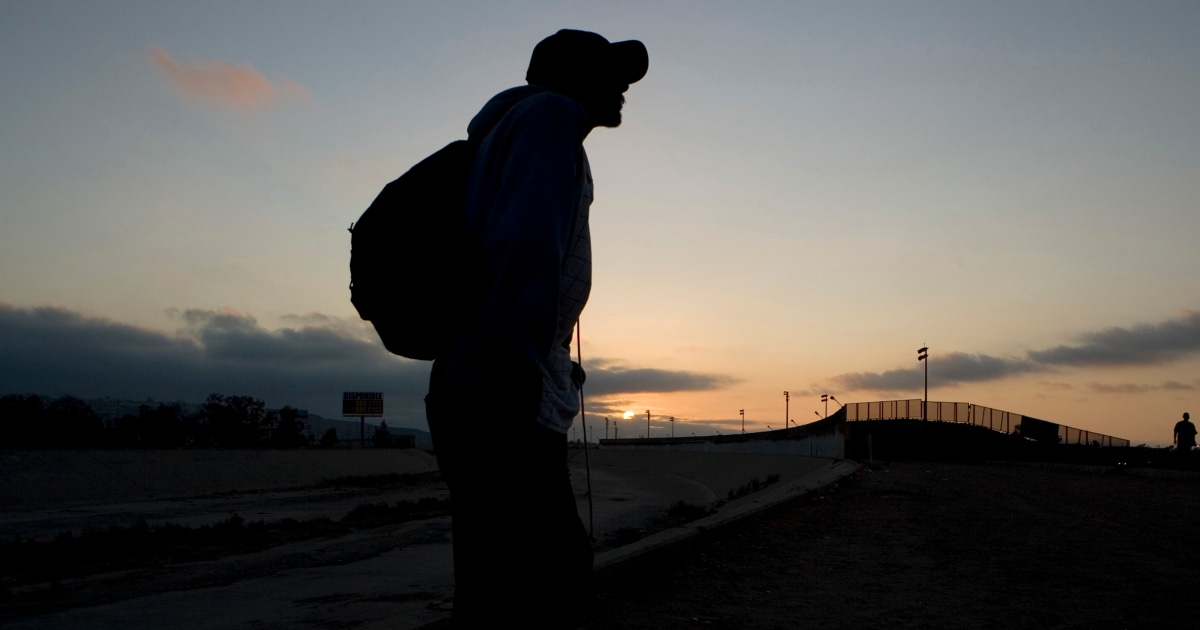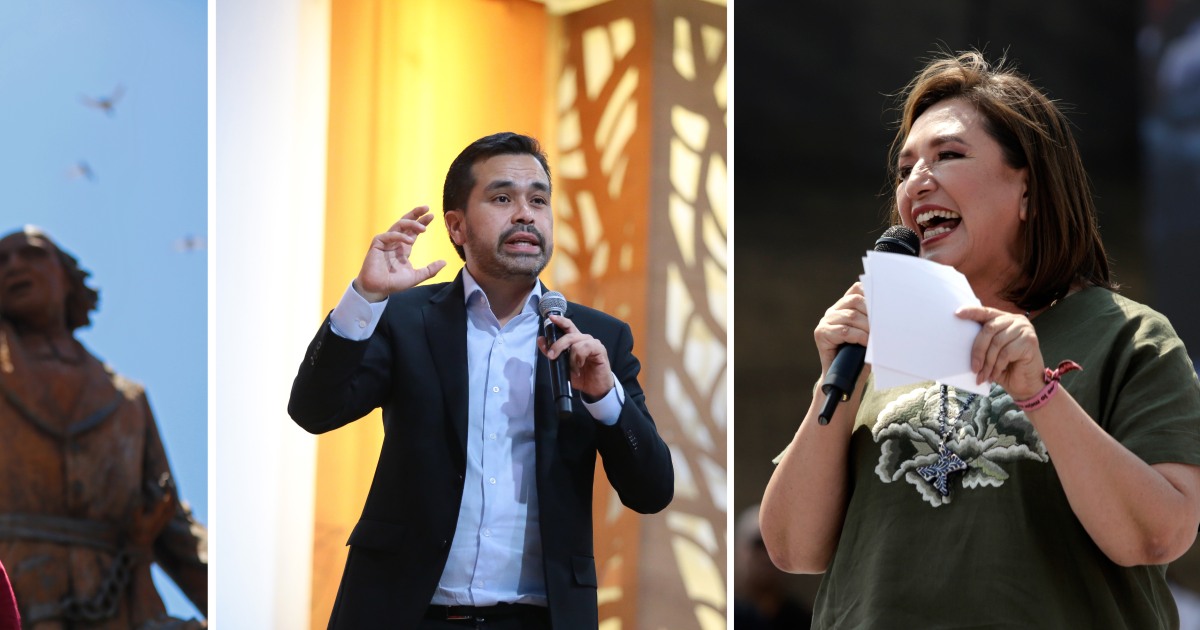Raymundo Campos Vázquez (42 years old, Ciudad Victoria) was still a teenager in northern Mexico when some hooded peasants took up arms in Chiapas, at the other end of the country, to demand greater social justice.
Suddenly, this son of accountants discovered through the news a country that he did not know.
"He had never been to the south and the images of the Zapatista uprising were a great surprise," recalls today's economist.
"I began to question why there were these differences."
Searching for an answer to those images of hooded peasants began to gnaw at him inside.
However, in the Economics degree at the Tecnológico de Monterrey, the discussion was different.
The fall of the Soviet Union had ushered in a wave of boundless optimism about capitalism's potential to change the world.
Eight years earlier, Mexico had signed the Free Trade Agreement with the US and Canada.
There was talk of efficiency, of growing and producing more.
"Inequality is going to reduce itself," Campos Vázquez recalls what his teachers used to say about him.
More than 20 years later, inequality in Mexico is similar to that of the 1990s -also to that of the time of Porfirio Díaz-, and he is one of the greatest experts on the subject.
Since he began his doctorate at the University of Berkeley under the mentorship of Emmanuel Saez and Nobel laureate David Card, Vázquez Campos has signed dozens of investigations on the many facets of the problem: how does skin color influence salary? and the gender and socioeconomic status of the parents?
A professor at El Colegio de México since 2009, Campos Vázquez receives EL PAÍS in his office.
The bottom of his computer are several well-worn volumes of the
American Economic Review
.
The shelves are full of books on econometrics and the blackboard with mathematical equations.
He alone clashes, in one of the corners, a small engraving of Napoleon Bonaparte, standing in front of his work cabinet.
An example of upward mobility?
“For being the great equalizer;
the Civil Code and that”, clarifies Campos Vázquez, with a laugh.
The economist is about to publish
Inequalities.
Why a more egalitarian country benefits us
.
Inequalities, in the plural, because there is not one.
Gender, racial, socioeconomic, regional, they all end up merging into the same fence.
The book is one of the most serious informative exercises written on the subject in Mexico in recent years and is co-published by the Espinosa Yglesias Study Center, of which Campos Vázquez is an associate researcher, and the Grano de Sal publishing house, the same publisher to Thomas Piketty, author of
Capital in the 21st Century
and one of the great references in this field.
With Piketty, Campos Vázquez also shares a taste for the British nineteenth-century novel.
Characters from Jane Austen and Charles Dickens parade through his text to support arguments.
Data after data, this Mexican Thomas Piketty seeks to overthrow that idea so deeply rooted in the country that everything is possible if one makes an effort and makes an effort, the famous "echeleganismo".
"If you were born in the mountains of Chiapas, the opportunities you are going to have as an adult are going to be very low," he says.
"Of course, trying hard is important, but most of the time it's not enough."
Today, the richest 1% in Mexico accounts for 25% of national income, compared to 20% in the US and Colombia, or 11% in France.
The door to that elite is practically closed.
Only 2.4% of Mexicans born into poverty reach the stratum with the greatest resources, compared to 11.5% in Canada and 7.5% in the United States. In Chiapas, it is more likely that the children will end up in a economic situation even worse than that of the parents.
78% of those born into the poorest stratum will remain there as adults.
In other words, tell me who your parents are and where you live and I'll tell you how much progress you'll make.
If the person is of a dark complexion, the chances are even lower.
Campos Vázquez has led studies on the economic consequences of racial discrimination in a country that is still difficult to accept as racist.
66% of the dark-skinned poor will stay where they are, versus 47% of the lighter-skinned poor, according to his research.
The law of the jungle or more State
For Vázquez Campos, the situation is aberrant and represents the "greatest threat to the territorial integrity" of the country.
He means it.
“What is going to be the incentive for someone in Nuevo León to pay taxes if its inhabitants are so different and the policies they want radically different from those of Chiapas?
And if those policies become diametrically opposed, why be together?” he asks.
To avoid it, he says, there are two options: "The law of the jungle or that the State helps us to have a more comfortable and prosperous life."
The solutions he proposes are less radical than those of Piketty, who has come to propose the abolition of inheritance and taxing the highest salaries at 80%.
The Mexican does not go so far: a maximum rate on income of between 45% and 61% and establish a tax -today non-existent- on the largest inheritances.
Something more forceful can scare off prey.
“The behavior of our rich is a little more sensitive to the tax rate than that of other countries;
they are going to hide their money better, they are going to take it elsewhere… ”, he points out.
Raising taxes on the richest is only part of the program.
The State, with a non-partisan bureaucracy, must better invest its resources in public transport, health and education systems.
“What good are scholarships if the school doesn't even have running water?” she wonders.
It also proposes a universal transfer to pregnant mothers and children under three years of age, whose cost would be similar to that of pensions for older adults and which would seek to increase the availability of parents to be with their children and thus promote their development.
The poorest parents today spend 20 hours a week with them, compared to 31 hours for the richest.
This conversation takes place one day after President Andrés Manuel López Obrador presented the fourth government report.
In the speech, he highlighted the reduction of inequality as one of his achievements: the rich are only 16 times richer than the poorest, and not 18 times as before the pandemic.
The decline, however, is due to a wage loss among the wealthiest, not an improvement among the least advantaged.
“Discussing whether inequality fell one unit or two units due to the situation is sterile.
Historically, inequality has changed relatively little”, says Campos Vázquez.
“Structural conditions should be discussed.
How are we going to do it so that in Chiapas there are more schools, more hospitals with the quality of those of other entities?
In the end, says Campos Vázquez, the important thing is that more and more people are interested in this topic and discuss it.
There are still characters like the controversial billionaire Ricardo Salinas Pliego, a scion of a rich family who gives lessons to the less fortunate about the need for effort.
However, they are no longer as noisy as before, says the economist.
The mine of research that has come to light in the last decade has helped to elevate the discussion.
“Inequality is a problem that affects us all as a society, not just the poorest,” he says.
From time to time, the economist sees a meme on social networks that uses data from his studies to denounce the differences between rich and poor, men and women, whites and browns.
They don't mention him, but he doesn't care: "For me it's a great recognition of all the work we've done, not just me," he says.
"Being able to change the discourse on inequality in this way is a great challenge."
subscribe here
to the
newsletter
of EL PAÍS México and receive all the informative keys of the current affairs of this country


/cloudfront-eu-central-1.images.arcpublishing.com/prisa/RK3AI2H26NFTRJ3VH3EVPP573E.jpg)










/cloudfront-eu-central-1.images.arcpublishing.com/prisa/KMEYMJKESBAZBE4MRBAM4TGHIQ.jpg)

